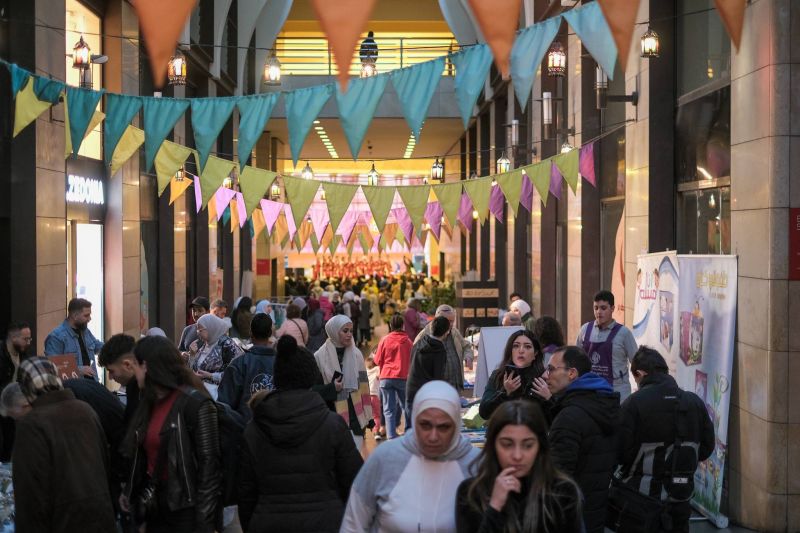
Muslims in Lebanon celebrate Ramadan, March 10, 2024. (Credit: Joao Sousa/L'Orient Today)
Ramadan, a holy month of religious introspection in which Muslims fast from sunrise to sunset, started on Monday for most Muslims. For others, however, in countries like Iran and Iraq where there is a majority Shiite Muslim population, Ramadan began on Tuesday. Why does Ramadan start at different times for different religious clerks?
Unlike the standard months, Muslim months begin following the return of the moon in the sky after the new moon. Dar al-Fatwa, Lebanon's main Sunni institution, announced over the weekend that the month of Ramadan would start on Monday.
The head of Dar al-Fatwa, Abdel-Latif Derian, made a statement saying that Ramadan will begin because the first sliver of the waxing crescent moon was observed in Qatar and other Islamic and Arab countries. A spokesperson for Dar al-Fatwa, Khaldoun Kawas, told L'Orient Today that according to the religious body, even if the crescent moon was not seen in Lebanon, so long as it was seen from any Islamic or Arab country, it means the beginning of the next month would be the following day.
On the other hand, Lebanese Shiites, for the most part, follow one of three references: Lebanon's Sayyid Mohammad Hussein Fadlallah's institution, Iraq's Grand Ayatollah Ali al-Sistani, and Iran's Supreme Leader Ayatollah Ali al-Khamenei.
Sayyid Ghanem al-Hasani, from the Fadlallah Institute, told L'Orient Today that the rule of seeing the crescent moon is based on a Hadith for the Prophet Mohamad in which he says "Fast as you see it and wait till you see it." Religious clerks have interpreted this saying in a variety of different ways.
For the Grand Fadlallah, founder of the institution, Hasani explained that other clerks would say that the moon has to be seen with eyesight, however, his institution relies on the charts and equations of astronomy. "Today science has developed; there is a telescope. If we rely on eyesight, different people will see different things, there could be dust or clouds that would prevent us from seeing the crescent moon," Hasani said. "There is also the matter of different locations, not all seeing the crescent moon. Science and telescopes would solve this problem and make [the schedule] universal."
Shiite Sheikh Yasser Awdeh explained that Ayatollah Ali Khamenei, whom Hezbollah follows as a religious leader, goes by the rule that the crescent moon must be witnessed by sight or through a telescope. However, Iranian Shiites start on Tuesday instead of Monday because they have to be able to observe the moon from their territory. If they don't, Ramadan gets postponed for another day.
Awdeh also explained that Sayyed Ali al-Sistani, whom a lot of Lebanese also follow and who also decided that the beginning of Ramadan is on Tuesday, only believes in seeing the crescent moon with the naked eye, and they have to see it from Iraq, which is why sometimes, Iraq and Iran start on different days as well.
Similar to how the month starts, Ramadan ends at different times too, as the different religious groups stick to their personalized schedules, celebrating Adha Eid depending on their own relationships to the moon cycles.